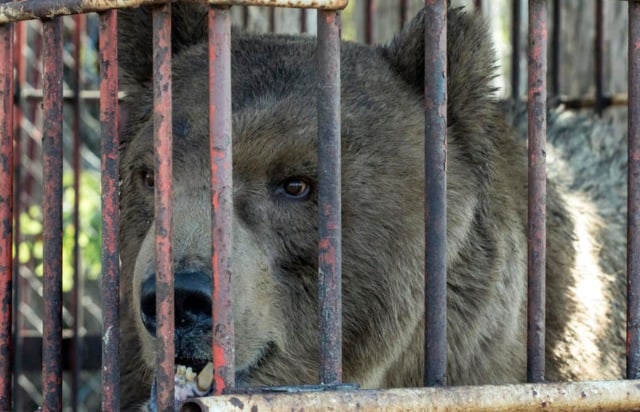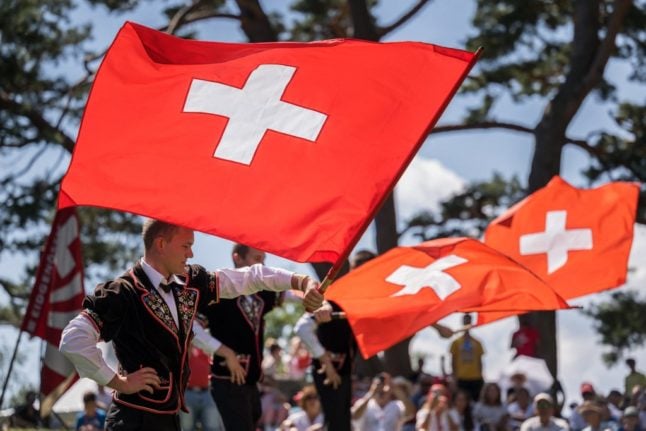Last week, a Serbian circus bear named Napa arrived in town after a 1,400-kilometre journey lasting 24 hours.
He is the first (and as yet only) resident of the much-heralded new Arosa Bear Sanctuary animal protection project.
The facility is designed to house five bears who have previously been kept in captivity in poor conditions. The plan is help the animals learn to readjust to their natural habit.
The new bear sanctuary is set to open on August 3rd with federal environment minister Doris Leuthard on the guest list.
But Napa's arrival has thrown a spanner in the works of Arosa's traditional August 1st National Day celebrations, and more specifically the all-important fireworks display.
Read also: Ten brilliant ways to celebrate Swiss National Day
In a bid not to disturb the new arrival, the town council has decided to not to go ahead with an official fireworks display this year and is even looking at cancelling the show in 2019.
At the same time, the head of the Arosa bear foundation, Pascal Jenny, has asked local business and holiday home owners to be sparing with their rockets and roman candles.
Not everyone is happy about the move to ditch the fireworks though.
“For a few days now, Arosa has been home not just to a bear but to also to golden calf to which all must be sacrificed,” said one reader of regional daily newspaper Südostschweiz.
Speaking anonymously, another local resident said: “For me, fireworks are just part of August 1st. The bear is here now but I think we need to set other priorities.”
Read also: Swiss National Day – five traditions all expats should try



 Please whitelist us to continue reading.
Please whitelist us to continue reading.